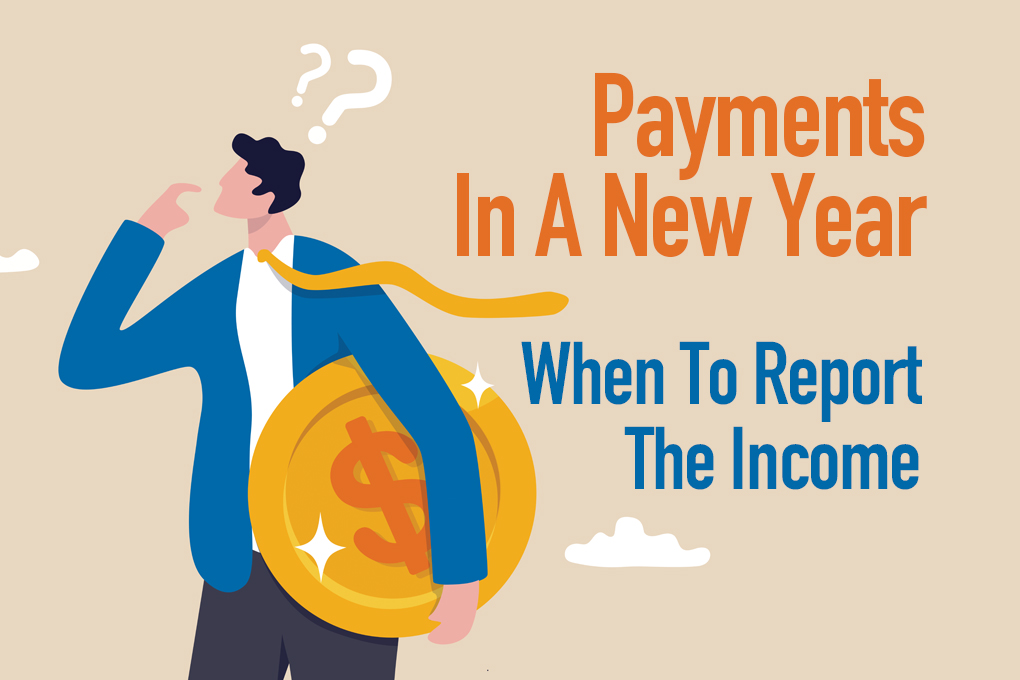WAIT A MINUTE!!! Why did I get a 1099 for monies I received in a following year?
You did the work late in the year. You expect to get a check in that year, but actually receive the check just after the new year. When do you report the income?
As a CPA, I come across this situation all the time. I have clients who will mail checks to pay their vendors on December 31st just before the Post Office closes. They want the deduction in the current year but want to float a bit of cash. OK, that is good for them. However, if you are the recipient of that payment and you receive it on January 5th, the question is what year do you declare the income? With very few exceptions, each year stands by itself for tax purposes. Since most of you are CASH basis taxpayers, you must report income and expenses that you actually receive or incurred during the taxable year.
Here is Some Law Stuff
Ugly but necessary. Not to worry, no quiz after!
Treas. Reg. 1.61-1(a) emphasizes that what counts as gross income includes “receipt” of cash, property, or services. Basically, if you have not received any of the above, you have no income to report. But the person who sent you the 1099, files a copy with the IRS to let them know he(she) paid you in the current year. I apologize for this, but a bit more law. There is a rule of law called the Constructive Receipt Doctrine.
Here’s how Treas. Reg. 1.451-2 explains the doctrine: “Income although not actually reduced to a taxpayer’s possession is constructively received by him in the taxable year during which it is credited to his account, set apart for him, or otherwise made available so that he may draw upon it at any time, or so that he could have drawn upon it during the taxable year if notice of intention to withdraw had been given. However, income is not constructively received if the taxpayer’s control of its receipt is subject to substantial limitations or restrictions.”.
What the Heck Does All That Mean?
Well, it means if you do not receive the money, you do not have control over the use of it, then it is not income. That part in the beginning above, “not actually reduced to a taxpayer’s possession” simply means that in the current year, you did not have access to the money, or ability to control use of it.
Then why do I get so many nasty calls from my client’s vendors? This happens almost every year and let me say that the calls are, shall I say, far less than friendly. They demand that my client correct the 1099.
Here is the dilemma. My client did pay his vendors in year 1, but they received the money in year 2. WARNING: Do NOT ignore the 1099 you received just because you did not actually get the money. The IRS automated matching program will cause you to get a CP2000 notice (discussed in a later Blog).
Solution
Include the amount of the 1099 on your tax return then back it out, on a separate line, with an explanation that the monies related to the 1099 were received in a later year. Really easy for an experienced tax preparer. Also, remember to include the amount in year 2. If nothing else, you can impress your tax preparer with the law stuff I added or maybe that will just annoy them. Either way.

